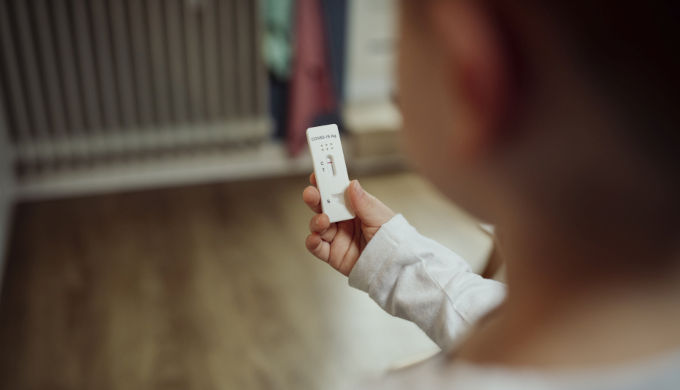Author: Eleanor McDermid
medwireNews: Researchers find a high burden of non-specific persistent symptoms in children aged 14 years or younger, with SARS-CoV-2 infection adding to this only slightly.
For the study, reported in The Lancet Child & Adolescent Health, Selina Kikkenborg Berg (Copenhagen University Hospital, Denmark) and colleagues sent surveys to the parents of 38,152 children with SARS-CoV-2 infection who were identified in Danish national registers.
They also contacted the parents of 147,212 age- and sex-matched controls with no record of SARS-CoV-2 infection. Of those contacted, the parents of 28.8% of cases and 22.4% of controls returned their surveys.
The team asked about 23 symptoms (16 in children aged 0–3 years) – previously associated with long COVID in children – that had persisted for more than 2 months. These included issues such as stomach ache, fatigue, fever, trouble concentrating, light sensitivity or dizziness.
The prevalence of these symptoms was high even in the control group, at 27.2%, 33.7% and 41.3% among children aged 0–3, 4–11 and 12–14 years, respectively.
In a linked commentary, Maren Johanne Heilskov Rytter (Slagelse Hospital, Denmark) writes: “Although this finding might not be surprising to child health workers, it is an important observation: symptoms in children come and go frequently, often without an obvious cause; sometimes they persist for many months, and usually they eventually wane.”
Nevertheless, the rates of these symptoms were significantly higher in children with previous SARS-CoV-2 infection, at 40.0%, 38.1% and 46.0% in the 0–3, 4–11 and 12–14 year-old groups, respectively, giving corresponding odds ratios of 1.78, 1.23 and 1.21.
For individual symptoms, absolute differences were very small and nonsignificant and many were not statistically significant. In a few cases – for example, rashes in children aged 4–11 years and mood swings in those aged 12–14 years – the prevalence was higher in controls than in cases.
Children with previous SARS-CoV-2 infection reported more absence from school or daycare due to illness than controls, across all age groups. Conversely, cases older than 3 years had significantly better psychological and social outcomes than controls, as well as better emotional functioning.
In her commentary, Rytter says that interpreting the findings “is challenging”, noting the potential for recall bias and selection bias if parents of children with SARS-CoV-2 infection were more aware of minor symptoms and more motivated to respond to the survey in the context of ongoing symptoms.
“On a population level, the overall impact on children of having had COVID-19 is probably small, and less than the indirect effects of the pandemic”, she suggests.
“For most children with non-specific symptoms following COVID-19, the symptoms are more likely to be caused by something other than COVID-19 and, if they are related to COVID-19, they are likely to pass with time.”
News stories are provided by medwireNews, which is an independent medical news service provided by Springer Healthcare Ltd. © 2022 Springer Healthcare Ltd, part of the Springer Nature Group
This independent news story was supported by an educational grant from L’Institut Servier, Suresnes, France.
Lancet Child Adolesc Health 2022; doi:10.1016/S2352-4642(22)00154-7
Lancet Child Adolesc Health 2022; doi:10.1016/S2352-4642(22)00167-5
Image Credits: © pascalskwara / stock.adobe.com



